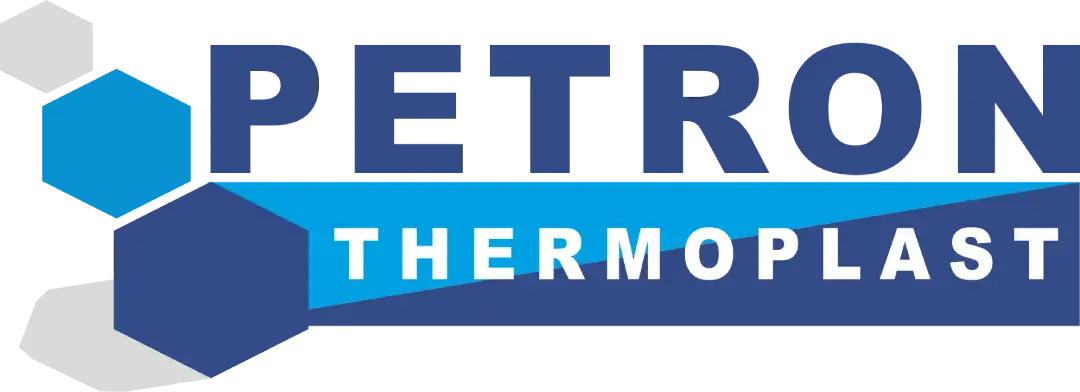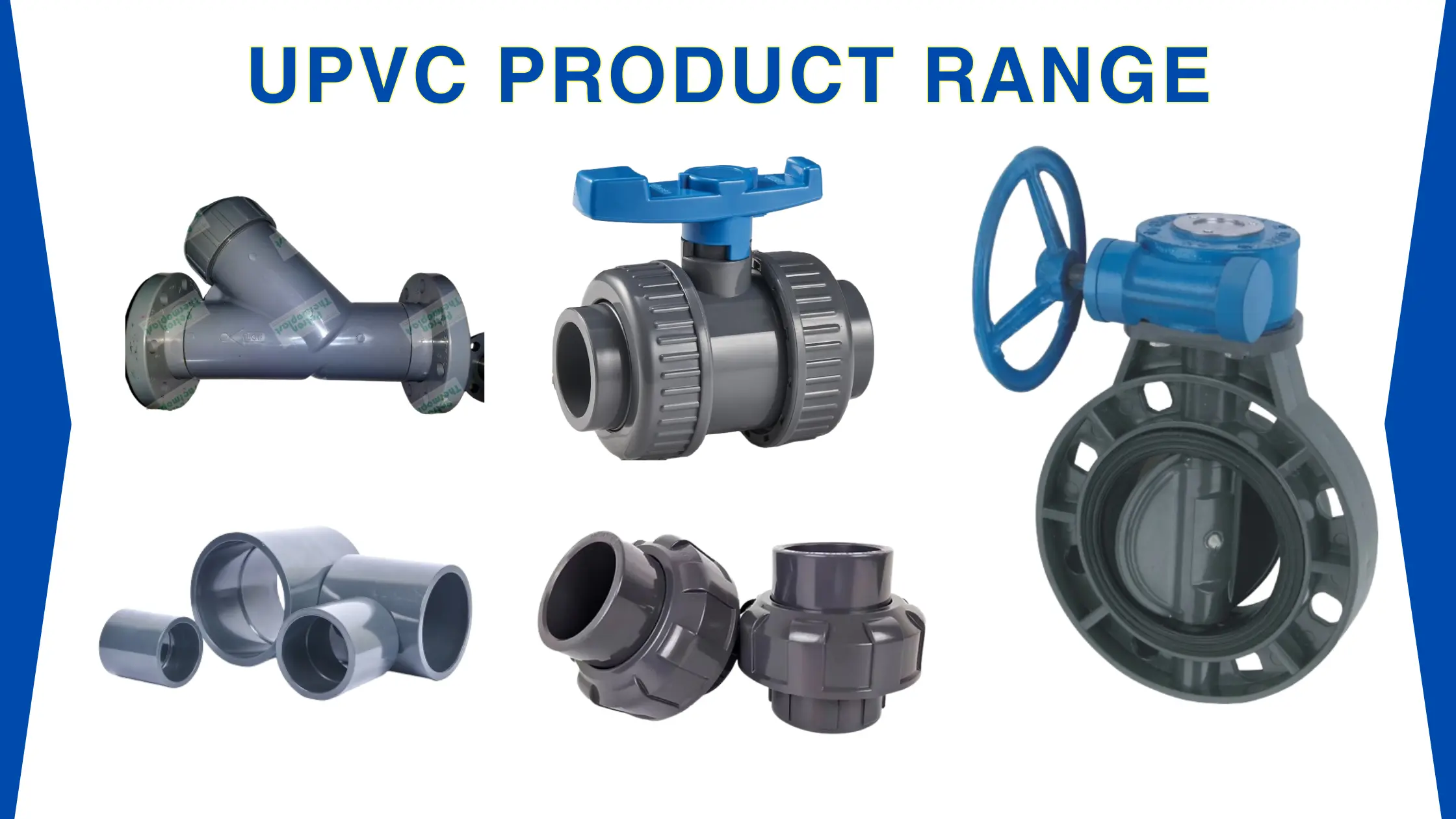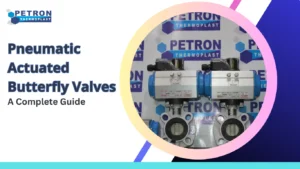When it comes to selecting the right material for piping and plumbing systems, durability, efficiency, and cost-effectiveness are the key factors. One material that stands out in the industry is Unplasticized Polyvinyl Chloride (UPVC). Known for its high strength, corrosion resistance, and long lifespan, UPVC has become the preferred choice for residential, commercial, and industrial applications.
In this blog, we will explore why UPVC is the best choice for piping and plumbing systems, its benefits, applications, and why it outperforms traditional materials like metal and other plastics.
What is UPVC?
UPVC, or Unplasticized Polyvinyl Chloride, is a rigid, durable, and lead-free thermoplastic polymer that does not contain plasticizers, making it stronger and more resistant to chemical degradation. It is widely used in plumbing, water supply systems, drainage, and industrial piping due to its outstanding properties.
Key Features of UPVC:
- High durability – Resistant to impact, weather conditions, and UV rays.
- Corrosion and chemical resistance – Ideal for transporting water and chemicals.
- Lightweight and easy to install – Reduces labor costs and installation time.
- Non-toxic and lead-free – Safe for potable water applications.
- Low maintenance – No rusting, scaling, or contamination.
- Cost-effective – More affordable than metal pipes with lower maintenance costs.
UPVC Product Range

1. UPVC Pipes
- UPVC Pressure Pipes – Suitable for water supply & industrial applications
- UPVC Plumbing Pipes – Ideal for residential & commercial plumbing
- UPVC Drainage Pipes – Designed for efficient wastewater management
- UPVC Conduit Pipes – Used for electrical wiring protection
- UPVC Well Casing Pipes – For borewell & groundwater extraction
2. UPVC Pipe Fittings
- UPVC Couplings – Connect two pipes securely
- UPVC Elbows (45° & 90°) – For directional changes in piping
- UPVC Tees (Equal & Reducing) – Branch connections for pipelines
- UPVC Reducers – For connecting pipes of different sizes
- UPVC End Caps – Sealing pipe ends
- UPVC Unions – Easy disconnection for maintenance
- UPVC Bushings – Reduce pipe size for proper fitting
3. UPVC Valves
- UPVC Ball Valves – Smooth flow control with high durability
- UPVC Check Valves – Prevents backflow in pipelines
- UPVC Gate Valves – Controls water flow in large-scale applications
- UPVC Butterfly Valves – For efficient fluid regulation
4. UPVC Sheets & Rods
- UPVC Sheets – Used for industrial, chemical, and construction purposes
- UPVC Rods – Ideal for machining & fabrication
5. UPVC Industrial & Agricultural Products
- UPVC Irrigation Pipes & Fittings – For efficient water distribution in agriculture
- UPVC Chemical-Resistant Pipes – Used in chemical processing industries
- UPVC Ventilation Ducts – For air circulation in industries
Why UPVC is the Best Choice for Piping & Plumbing Systems
1. Superior Durability & Longevity
UPVC pipes are known for their exceptional strength and long service life. Unlike metal pipes, which are prone to rust and corrosion, UPVC pipes remain intact even in harsh environmental conditions. They can last up to 50 years or more, making them a cost-effective investment for plumbing systems.
2. Corrosion & Chemical Resistance
One of the biggest advantages of UPVC pipes is their resistance to corrosion, rust, and chemical reactions. Traditional metal pipes tend to corrode over time, leading to leaks and contamination. In contrast, UPVC is highly resistant to acids, alkalis, and other chemicals, making it perfect for industrial applications as well as household plumbing.
3. Lightweight & Easy to Install
UPVC pipes are significantly lighter than metal pipes, making transportation and installation much easier and more cost-effective. The lightweight nature reduces labor costs and installation time, making UPVC an efficient choice for both small and large-scale projects.
4. Safe for Drinking Water & Plumbing
Since UPVC pipes are lead-free and non-toxic, they are the safest option for potable water supply systems. Unlike some other materials that may release harmful substances into the water, UPVC maintains water purity and meets international safety standards for drinking water applications.
5. High Pressure & Temperature Tolerance
UPVC pipes can withstand high water pressure and temperature variations, making them ideal for both hot and cold water supply. They do not warp, crack, or degrade under pressure, ensuring a consistent flow of water without the risk of pipe bursts.
6. Low Maintenance & Cost-Effective
UPVC pipes require minimal maintenance compared to metal pipes, which often require frequent repairs due to rust, leaks, and corrosion. Since UPVC does not degrade over time, maintenance costs are significantly lower, making it a budget-friendly choice for long-term use.
7. Environmentally Friendly & Recyclable
UPVC is an eco-friendly material as it is recyclable and does not contribute to environmental pollution. Unlike metal pipes that require energy-intensive manufacturing, UPVC has a lower carbon footprint, making it a sustainable choice for modern infrastructure.
8. Versatile Applications
UPVC pipes are used in a wide range of applications, including:
- Plumbing and water distribution systems
- Drainage and sewer systems
- Irrigation and agriculture
- Industrial fluid transportation
- Chemical processing plants
- Firefighting and HVAC systems
Comparing UPVC with Other Piping Materials
| Feature | UPVC Pipes | Metal Pipes (Steel, Copper) | Other Plastics (PVC, PPR) |
| Durability | High (50+ years) | Medium (Prone to rust) | High (Depends on type) |
| Corrosion Resistance | Excellent | Poor (Rust & corrosion) | Good |
| Chemical Resistance | High | Low | Medium to High |
| Weight | Lightweight | Heavy | Medium |
| Installation | Easy & quick | Difficult & labor-intensive | Moderate |
| Cost | Affordable | Expensive | Varies |
| Maintenance | Low | High | Medium |
| Eco-Friendly | Recyclable | Less eco-friendly | Recyclable |
Tips for Choosing the Right UPVC Pipes
To get the best results from UPVC piping systems, consider the following:
- Determine the application – Select UPVC pipes suitable for your specific need (water supply, drainage, irrigation, etc.).
- Check pressure ratings – Ensure the pipe can handle the required water pressure.
- Choose certified pipes – Opt for UPVC pipes that meet ISO, ASTM, or other industry standards.
- Ensure proper installation – Follow manufacturer guidelines for proper UPVC pipe fitting and sealing.
- Regular inspections – Periodically check for leaks or damages to maintain efficiency.
Conclusion
UPVC is undoubtedly the best choice for piping and plumbing systems due to its superior durability, corrosion resistance, ease of installation, cost-effectiveness, and environmental benefits. Whether for residential, commercial, or industrial use, UPVC pipes provide a long-lasting, maintenance-free solution that outperforms traditional materials.
For high-quality UPVC piping solutions, trust Petron Thermoplast – a leading manufacturer of durable, high-performance plastic piping systems.




